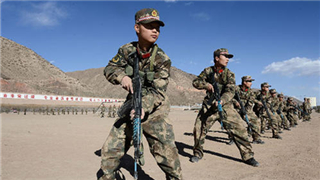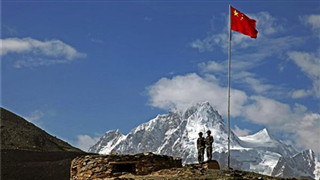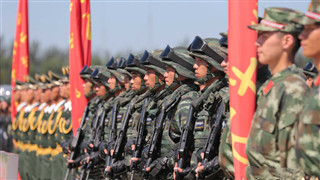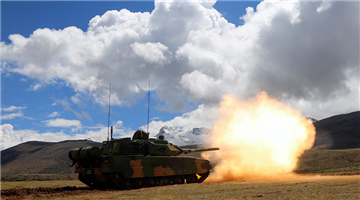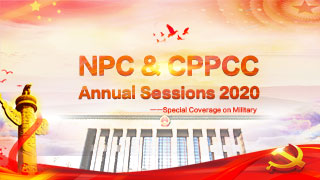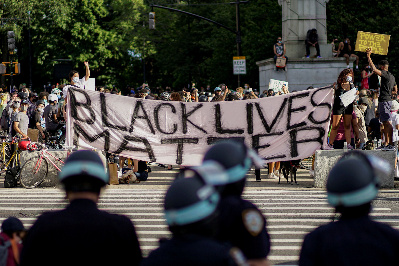
By Zhang Hong
Does it really want to quit?
"We are not the world police." Recent speeches by the American leaders have gone viral suddenly.
This is logically reasonable. When there being no "world government", where could the "world police" come from? Moreover, the purpose of the US has never been to maintain public safety. In its eyes, playing the role of world police is a way to maintain its hegemony, useful when being needed and discarded when not. .
In the past, the US held an unconstrained global hegemony under the unipolar pattern, and constantly performed its "world police" duty through war: the intervention in the Gulf War in 1991, the war on terrorism in 2001, and the official declaration of war against Iraq in 2003... The US stood proudly as a leader in these events. Ironically, the reality of increasing terrorism, as well as the unauthorized dispatch of troops to Iraq on the grounds of so-called "weapons of mass destruction" without the approval of the United Nations, has become the embarrassment that the US dare not face squarely.
As multi-polarization is a world trend, the US revels its powerless embarrassment from time to time, especially after the 2008 financial crisis that originated from inside. When it comes to the problem of whether it should still act as the "world police", Uncle Sam was a little unhappy.
From the failed "red line" for the Assad government in Syria during the Obama administration, to the "lead from behind" strategy adopted in military intervention in Libya, the US began to maintain its hegemony through clever resource mobilization. The so-called "smart power" became the key word of American diplomacy during this period.
Today, the US administration under Donald Trump is even more straightforward. If you need the US to provide security, you should share the cost. As a result, US allies were forced to increase military spending and share financial pressure for the US.
But this surely in no way means that the US will give up hegemony.
The US has spared no effort in strategically important areas. The Senate Armed Services Committee recently passed a $740 billion National Defense Authorization Act for Fiscal Year 2021, which for the first time authorizes the establishment of the Pacific Deterrence Initiative fund primarily aimed at China and requires an investigation report on the possible risks of using Huawei technology. The fund will focus on competition among the major powers in the Indo-Pacific region and strengthen the US military's strategic capabilities in this region.
Moreover, three aircraft carrier battle groups of the US Navy are simultaneously operating in the Indo-Pacific Sea at a time when the COVID-19 pandemic is still severe. At the same time, the US continues to maintain the existence of two aircraft carrier battle groups in the Gulf region.
The US appears in almost every hotspot and keeps causing endless regional disputes and conflicts. Its security forces killed senior officials of the Islamic Revolutionary Guard Corps of Iran, resulting in tensions in the Gulf region. It interfered in China's Taiwan Strait and South China Sea affairs and instigated regional allies and partners to make provocations, causing tensions in the region. It publicly declared that it will take decisive measures to prevent the Syrian President Bashar al-Assad's government from winning a military victory in Syria.
In 2014, then US President Barack Obama declared that America must always lead on the world stage. The indispensable role of the US in the world is both a reality of the past century and a reality of the next century. "Leading on the world for another hundred years", he said.
The US has always been clear on what it wants.
